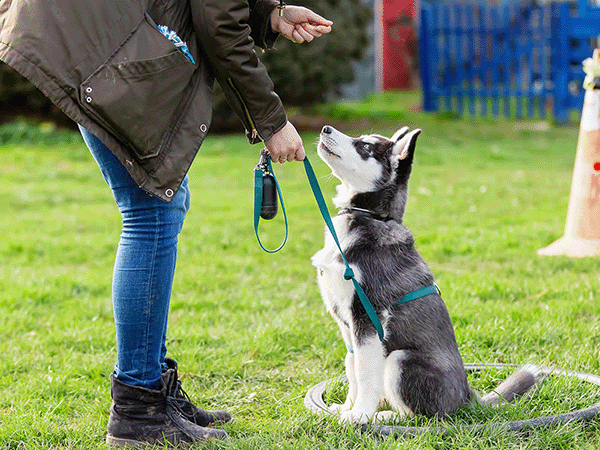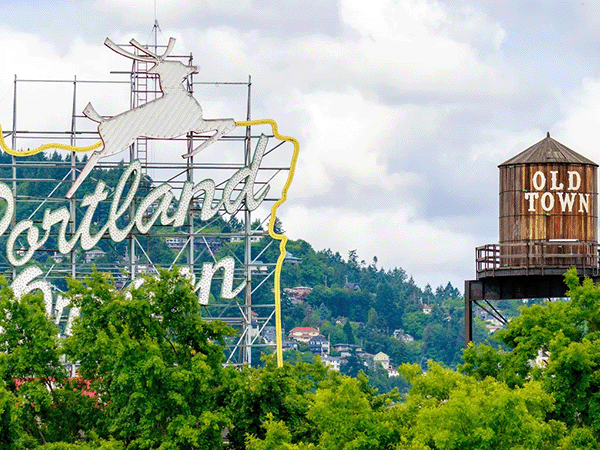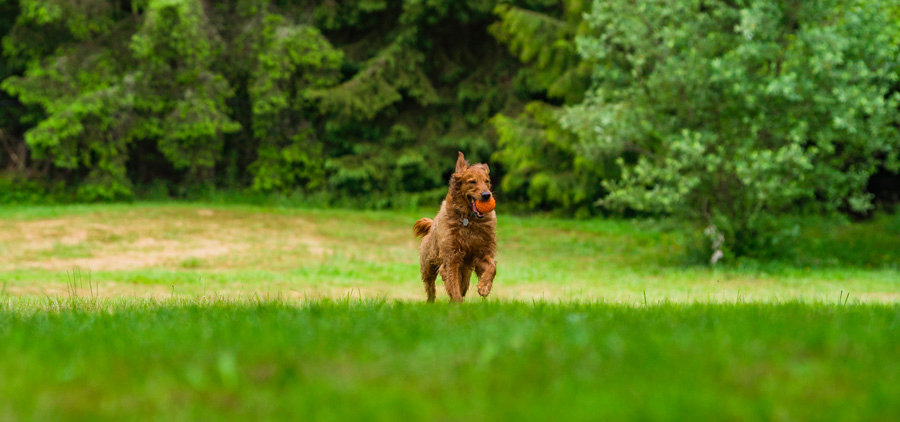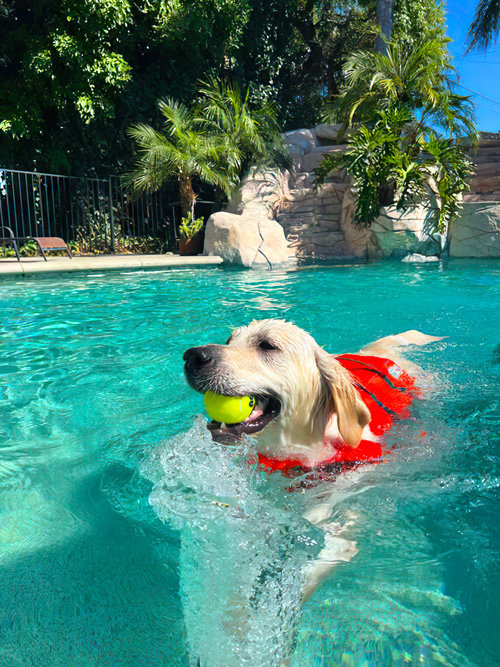The Best Wichita, KS Dog Rescues & Shelters in 2026
No dog rescues found

#100 in United States, #2 in Kansas, #1 in Wichita
Wichita Animal Action League, or WAAL, is a state-licensed rescue and 501c3 nonprofit organization. We are a foster-home-based rescue and do not operate a full time facility. Our goal is to fill the gap created from the financial and personnel constraints of local governments resources. We fulfill our mission with three main branches of service: 1. Adoption 1. Saving animals at risk of euthanasia at local shelters 2. Providing rehoming services to owners to prevent pets from entering the shelter system 2. Spay/Neuter Services 1. Spay It Forward, a voucher program designed to stop unnecessary pet euthanasia by combating its source: overpopulation 2. TNR services 3. Community Outreach 1. Providing welfare checks for neglect/cruelty concerns 2. Emergency rescue responding when others say, “We don’t do that,” including saving cats in trees, ducklings in storm drains, and starving horses 3. Assisting the city shelter with vet care costs for medical-emergency cases 4. Donating supplies to owners in need 5. Assisting owners with vet bills 6. Empowering the community with vaccination and supply clinics 7. Providing food for community per food banks 8. Providing low cost microchips for the community 9. Offering dog training grants for low-income owners We are 100% reliant on donations to provide these life-saving services. We need your help to carry out our mission! Whether you are called to volunteer, foster, adopt, or donate, we need you, and so do the animals!
Wichita, KS

Kansas Humane Society of Wichita
#100 in United States, #2 in Kansas, #1 in Wichita
Helping Animals & Saving Lives Since 1888 For over 133 years, the Kansas Humane Society has been committed to helping the abandoned and homeless animals in our community. Our animal shelter has helped hundreds of thousands of Wichita’s pets by providing them care, comfort, hope, and most importantly, a second chance at a new life. The Kansas Humane Society is a community resource for pets and people. We offer an array of services that promote the human/animal bond, including pet adoption, behavior consultation, pet supplies, social media outreach, spay/neuter, end of life services, classroom field trips, youth education and community outreach. The Kansas Humane Society is a non-profit 501(c)(3) organization and receives no federal, state or local tax dollars, support from the Humane Society of the United States, is not a United Way agency, and depends entirely on private donations and fees for service.
Wichita, KS

#100 in United States, #2 in Kansas, #1 in Wichita
Cowley County Humane Society is committed to providing compassionate care, nutritious food, medical care, and comfortable housing to animals. Since the early 2000's, we have been dedicated to caring for and promoting the rights of animals through numerous initiatives. Our main goal is to educate and improve the treatment of animals around the world.
Wichita, KS

#100 in United States, #2 in Kansas, #1 in Wichita
Kansas K-9 ResQ was founded in 2001 by Shadow's foster mom and the couple that adopted him. Inspired by Shadow, this group formed their desire to help other unwanted dogs. The founders vowed that a dog in their rescue would never go without proper and timely veterinary care, as Shadow had. With a handful of members and a very tight budget, only four dogs were adopted into forever homes that first year. Since that time, our group and our budget have grown substantially. In addition to the generosity of donations, our group members work tirelessly to raise funds to help dogs in need. We hold raffles, microchip clinics and a vast variety of other fund raisers. Over the years we have saved the lives of many hundreds of dogs. The dogs in our program are typically unclaimed strays from the Wichita Animal Shelter. A vet promptly sees all dogs that are taken into our program and their medical needs are attended to immediately. The dogs in our care live in foster homes where they are crate and house trained and assessed as to what kind of permanent home would best suit them. They live with their foster families until their forever home is found. We are proud of scripting happy endings for many once-discarded animals. The original founders continue their work with the rescue, and over the years they have inspired many other people to join them in their efforts. We now have a nine-member Board of Directors and dozens of foster parents and volunteers. Our group includes members who come from all walks of life, and are united with a common love for dogs and the desire to help animals in need. Kansas K-9 ResQ volunteers are extremely dedicated and through their hard work funds have been raised to help many animals in need. No longer having to scrape by, we regularly help dogs with special needs, such as those who have been confiscated in hoarding cases, cruelty cases, and in puppy mill raids; dogs that have been hit by cars; dogs with severe skin issues; dogs with heartworms; and dogs that have had major leg and joint injuries. We take in dogs of all ages and all breeds. Kansas K-9 ResQ volunteers work hard to continue Shadow’s legacy. His memory inspires the members of this group to continue our mission of “Making the world a better place…one dog at a time.”
Wichita, KS

#100 in United States, #2 in Kansas, #1 in Wichita
The Valley Center Animal League, Inc., was founded in 2009 when the local animal shelter was shut down. Our original goal was to prevent impounded animals from being transported to the Wichita Animal Shelter after 3 days. From there we evolved into a licensed “Group Home Shelter” in order to establish a network of individual foster homes.
Wichita, KS

#100 in United States, #2 in Kansas, #1 in Wichita
We are a non-profit dog rescue in the Rosalia, KS area. We began as a small senior center / hospice but have grown and now rescue dogs that are scheduled to be euthanized. We believe all good dogs deserve a second chance. Please read our story and check out our adoptable pets and our adoption stories. If you think you might be interested in adopting one of our pets or if you would like to help us in our endeavor to save unwanted pets, please contact us. The House That Alex Built In the summer of 1991, a colleague at Southwestern College convinced me to be a foster parent for a dog at the Winfield Animal Shelter. I went to the shelter and there were so many that I just pointed at the first one I saw: a cocker spaniel jumping up on the cage door. This dog had already been spoken for by a member of the local law enforcement, so I decided I really should take a longer look and there I saw her-a small brown puppy, sitting in the middle of the kennel. She was the only dog not jumping up and down and barking. She just sat there looking lost and confused. I thought, "We have a lot in common" and home she went. A week later I returned to the shelter and adopted little Alex. Miraculously she survived her first year of life living with a senior in college who had some not so bright friends that would try to feed her everything from all the pepperoni off a large pizza to chocolate brownies. And I must admit, I left a glass of peppermint schnapps down one night. She moved about 10 times during her life and although always afraid of being left the first few days in a new place always adjusted. In 1994, Alex and I added a new member to the family, when I married John -- that June we sent out invitations for a wedding reception/graduation party/belated birthday party for Alex. We were married in the backyard of our rental in Manhattan. Alex sat on my sister's lap. Some children I had babysat for when I was younger and who had adopted my parents as grandparents, brought balloons, a tablecloth and presents for Alex. So there at the wedding reception was Alex's little birthday table. In 2002, Alex was diagnosed with cancer. She put up a valiant fight but died two months later. During those two months, she went to work with me everyday and when I was in class, colleagues kept an eye on her. At the time I was also a member of the team negotiating the new contracts for the teachers at Butler Community College. This team included five other faculty, one dean, four VPs and the president of the college. Alex went to all the meetings during those two months, becoming an unofficial mascot. Right after finals week, we went to my parents' house, so that they could see Alex. My sister and her boyfriend drove down from Manhattan to see her too. Whenever we were at my parents' house, my dad would always share part of his hashbrowns with the doggies. Unfortunately when Alex was younger, she was diagnosed with bladder stones and had to go on a special diet, so dad could then only sneak her the tiniest of a piece. That last Saturday morning, he asked me if Alex could have hashbrowns and I told him she could eat whatever she wanted. I think he may have bought a separate order just for her. Dad was so happy the breakfast tradition could be reinstated. That night we went to sleep and Alex woke me at about 2 AM to go outside. We came back in and went to sleep. At about 3:30, John and I heard her cry out. We got to her and she tried to roll over from her side to lie on her stomach, but she couldn't. I reached for her head. She wagged her tail and then her little head rested in my hand. As always Alex took care of me. She waited until my semester was over, until I was surrounded by family and then she made the decision, so I wouldn't have to. We decided then that we would move to the country to help other dogs. It has taken six years, but we finally made it. Alex's House was initially envisioned as a place for old and sick dogs who had been abandoned by their owners at area shelters to go to ensure that their remaining time was a happy and comfortable one, but we quickly realized that dogs of all ages in this area are in need of rescue and so we opened our home to as many as we could.
Wichita, KS

#100 in United States, #2 in Kansas, #1 in Wichita
Since our inception in 2014, Beauties and Beasts has been working tirelessly to break the cycle of abuse and neglect of cats and dogs through awareness and education campaigns, advocating for and saving animals at risk of euthanasia at our local shelters, and through community outreach. Beauties and Beasts is 501(c)3, nonprofit organization that is volunteer led and is 100% dependent on generous donations from individuals, corporations and foundations. We currently maintain a private boarding facility for approximately 50 adoptable dogs, while the remainder of animals in our care are in foster homes. 300-350 animals are routinely in our care and our capacity is only limited to the number of active fosters. We do not discriminate against breed, age, medical needs, or behavior. We love ALL animals and breeds the same, and believe they all deserve a chance to become happy, healthy adoptable companion pets.
Wichita, KS

#100 in United States, #2 in Kansas, #1 in Wichita
The Kingman County Humane Society in Kingman, KS was established in 2001. It is operated by volunteers dedicated to finding permanent, loving homes for the animals under their care. Until permanent homes can be found, our animals are cared for in our shelter or in foster homes where they can be assessed for temperament, and given lots of attention. Our mission is to create and support meaningful connections by enhancing the lives of dogs, cats and the people in our communities who love them. We strive to reduce animal population through mandatory spay/neuter of all adoptable pets. We do not euthanize healthy or treatable animals, reserving euthanasia for terminally ill, severly injured or animals that are a danger to the public. Our ability to maintain a "humane shelter policy" requires the support and committment of adopters, volunteers, and the communities we serve. Your donations, along with adoption fees, are our primary means of financial support. We do not receive government support. We thank our amazing volunteers and donors for sharing their generosity and talent year around.
Wichita, KS

#100 in United States, #2 in Kansas, #1 in Wichita
The Animal Control Department enforces City of Hutchinson ordinances that govern the housing and care of animals. Those enforcement activities include returning stray dogs to their owners, investigating animal cruelty or neglect and violations of dangerous animal laws. An Animal Control Officer is on regular duty Tuesday through Saturday 8:00 a.m. - 4:00 p.m. Animal control is on an emergency basis on Sunday and Monday and after hours.
Wichita, KS

#100 in United States, #2 in Kansas, #1 in Wichita
The McPherson Animal Shelter was built in 2006 and opened its doors to the public on January 1, 2007. The building is able to house 16 dogs at one time. We are funded by the City of McPherson. We only take in dogs that are found running at large in the city limits; we also take surrender dogs that live in the city limits of McPherson. We keep them for 6 days to give the owner a chance to claim his/her pet. If they are not claimed after 6 days, we put them up for adoption.
Wichita, KS
Not finding the dog rescues you're looking for?
Try searching a different location or explore nearby areas with available dog rescues.
What's the Sniffspot Wichita Top Dog Rescue & Shelter List About?
Welcome to the 2026 Wichita, KS Sniffspot Top Dog Rescue & Shelter List, highlighting the top rescues and shelters in Wichita, KS chosen by the Sniffspot community and the public.
This list is sponsored by Sniffspot, the largest global network of private dog parks. Sniffspot offers 0 private dog parks in the Wichita area, including fenced, water, indoor, and beach parks. As a hub for rescue dogs, our sponsorship underscores our dedication to supporting shelters and rescues. Explore Wichita dog parks on Sniffspot's platform.
This list showcases the top dog rescues & shelters in Wichita, KS. These remarkable organizations have been recognized for their unwavering dedication to the well-being of countless dogs. We've compiled this list by gathering heartfelt testimonials from both the Sniffspot community and the wider public, ensuring a comprehensive perspective on these exceptional shelters.
See The Best Dog Rescues & Shelters In Other States
Ordered alphabetically, only included states where there is enough data to compile a list
Sniffspot Wichita Dog Rescues & Shelters Frequently Asked Questions
How many dog rescues and shelters operate in Wichita?
Most recent articles
Related articles
Top dog guides per area
Dog training guides

Dog Food Aggression: Why You Shouldn't Punish It
Does your dog ever growl when you walk by their food dish? Maybe they get possessive of treats, carrying them far away and giving you side-eye when you start to approach — or snarling at your other pets or children if they get too close.

Best Dog Fields in the US: 25+ Wide-Open Spaces for Your Pup to Run Free
The best dog fields in the US offer something that traditional enclosed parks simply can't match: acres of open space where your pup can truly stretch their legs and run at full speed. From Colorado's 470-acre prairie meadows to Tennessee's award-winning "Outback," these wide-open spaces allow dogs to roam, explore, and exercise naturally while engaging instincts that cramped urban parks suppress.

The Ultimate Guide to Scent Training for Dogs
Your dog's nose is an amazing tool. Did you know they have 40 times the olfactory receptors than humans? Scent training for dogs taps into this superpower, turning everyday moments into exciting sniff-fests. It's enriching for all types of dogs – reactive, shy, or simply adventurous. Ready to explore the world of scent work for dogs? Let's get started.

Service Dog Training Costs: DIY vs. Pro
More than 80 million Americans rely on their service dogs to help them navigate the world. Task-trained assistance animals perform a huge range of life-changing—in many cases, life-saving—services: These dogs act as eyes for visually impaired handlers, provide mobility support, alert to seizures and blood sugar crashes, interrupt anxiety attacks, remind their people to take medications, and so much more.

How to Deal With Puppy Potty Training Regression
You thought those dreaded middle-of-the-night potty breaks were over. You were finally free from cleaning up puppy puddles. Then, suddenly, your furry friend starts having accidents again. It's frustrating, right? This puppy potty training regression is more common than you think. Don't worry; we'll help you get your pup back on track. We'll cover the common causes, offer practical solutions, and give you actionable steps to tackle this challenge together.

Dirty Dog Syndrome: Causes, Solutions, and Prevention
It's a cringe-worthy moment every dog owner dreads: your furry friend chowing down on something truly disgusting. If your dog has a penchant for poop, you're dealing with coprophagia. It's more common than you think, and thankfully, often manageable. This article explores the reasons behind dirty dog syndrome, from instinct to learned behavior. We'll also give you practical tips to help break this unpleasant habit.

How to Train Your Rescue Dog: A Complete Guide
* All Sniffspot articles are reviewed by certified trainers for quality, please see bottom of article for details *
Dog enrichment guides

Best Dog Water Parks in the US: 15+ Amazing Splash Destinations for Your Pup
Do you have a water-loving dog looking to burn some energy? There are countless dog parks to visit throughout our country — but some of them become far too hot in the midday sun to be safe for your pets to play. That’s why we’ve put together a list of some of the best dog water parks throughout the United States! At these locations, your pup can frolic, splash, and swim to their heart’s content.

Best Dog Fields in the US: 25+ Wide-Open Spaces for Your Pup to Run Free
The best dog fields in the US offer something that traditional enclosed parks simply can't match: acres of open space where your pup can truly stretch their legs and run at full speed. From Colorado's 470-acre prairie meadows to Tennessee's award-winning "Outback," these wide-open spaces allow dogs to roam, explore, and exercise naturally while engaging instincts that cramped urban parks suppress.

Best Toys for Herding Dogs: Keeping Your Pup Happy & Engaged
Herding dogs are amazing, intelligent companions. But that also means they need more than just a simple game of fetch. Finding the right toys for herding dogs is key to keeping them happy and stimulated. This article explores some of the best toys for herding dogs, including options specifically for breeds like Border Collies and Australian Shepherds. We'll help you discover the perfect herding toys for dogs to tap into their natural instincts and keep them entertained for hours.

Tough Dog Toys for Aggressive Chewers: A Practical Guide
Does your dog destroy every toy you give them? Is your house littered with the remnants of plush toys? Are you tired of wasting money on "indestructible" dog toys for aggressive chewers that don't last? Then this post is for you. We'll cover everything you need to know about finding the best dog toys for aggressive chewers, so you can finally give your pup something safe, durable, and fun.

Daily Exercise Calculator: How Much Exercise Does Your Dog Need?
Everyone knows dogs need exercise, but how much is enough? Walks are great, but creating a truly balanced fitness plan means understanding your dog's specific needs. This post helps you develop a daily exercise calculator for your dog, considering breed, age, and lifestyle. We'll cover fun activities, understanding exercise intensity, and recognizing when your pup has had enough. Let's create a plan that keeps your dog happy and healthy!

Complete Guide To Herding With Dogs
* All Sniffspot articles are reviewed by certified trainers for quality, please see bottom of article for details *

Dog Enrichment Activities: The Ultimate Guide
Ever feel like your dog is restless or bored? They may be getting enough exercise, but still need more. That's where enrichment activities for dogs come in. Giving your dog opportunities to sniff, explore, and problem-solve can make a world of difference. Whether you have a puppy, adult, or senior dog, enriching their environment is key for their well-being. Let's explore how to add cognitive enrichment for dogs, even tailoring activities to your dog's breed with breed specific enrichment and fun enrichment games for dogs.
Dog reactivity guides

Rottweiler Aggression: Truth vs. Myth
Many dogs have gotten a bad reputation over the years for being "dangerous breeds." Rottweilers are among them. Like pit bulls and other large, blocky-headed types of dogs, these powerful and beautiful animals are often assumed to be aggressive.

Best Dog Fields in the US: 25+ Wide-Open Spaces for Your Pup to Run Free
The best dog fields in the US offer something that traditional enclosed parks simply can't match: acres of open space where your pup can truly stretch their legs and run at full speed. From Colorado's 470-acre prairie meadows to Tennessee's award-winning "Outback," these wide-open spaces allow dogs to roam, explore, and exercise naturally while engaging instincts that cramped urban parks suppress.

What Is a Reactive Dog? A Practical Guide for Owners
Does your dog suddenly transform into a barking, lunging Tasmanian devil on walks? It's stressful for both of you. If this sounds familiar, you might have a reactive dog. Understanding what is a reactive dog is the first step to calmer walks. We'll explore the common triggers and give you actionable strategies to manage and modify this behavior. Let's turn those stressful walks into enjoyable outings.

How to Socialize a Reactive Dog: A Step-by-Step Guide
Does your dog display reactivity to other pets or people? Maybe they’re a new rescue pup and are still settling into your home. Or they were sick growing up, so you missed their critical socialization period. Possibly they’ve had a bad experience after being raised as a normal puppy.

What Is a Reactive Dog? A Complete Guide
Is your dog overly excited or fearful around other dogs? Do they bark, lunge, or whine? You might have a reactive dog. Many dog owners face this challenge. Understanding what a reactive dog is is the first step to helping them. This guide explores the common causes of dog reactivity, explains what makes a dog reactive, and offers practical tips and resources. Let's work together to build a stronger bond with your dog and enjoy stress-free walks.

9 Best Online Communities for Reactive Dog Parents
Does your dog's reactivity make walks stressful? You're not alone. Many dog owners face similar challenges. This guide offers practical advice and support for managing reactivity, including finding the best online dog training for reactive dogs. We'll connect you with reactive dog support groups, share training tips, and explore resources like the best dog training app for reactive dogs. Let's build a stronger bond with your dog, together.
* All Sniffspot articles are reviewed by certified trainers for quality, please see bottom of article for details *
How To Groom a Reactive Dog
* All Sniffspot articles are reviewed by certified trainers for quality, please see bottom of article for details *
Sniffspot community guides

The State of Public Dog Parks Across the United States
From 2009 to 2020, there was a 40 percent increase in the development of public dog parks. Designated spots for canine exercise have become commonplace in every major city in North America — many pet owners won’t even consider renting an apartment that doesn’t have its own fenced-in pet area for their canine companions.

Best Dog Fields in the US: 25+ Wide-Open Spaces for Your Pup to Run Free
The best dog fields in the US offer something that traditional enclosed parks simply can't match: acres of open space where your pup can truly stretch their legs and run at full speed. From Colorado's 470-acre prairie meadows to Tennessee's award-winning "Outback," these wide-open spaces allow dogs to roam, explore, and exercise naturally while engaging instincts that cramped urban parks suppress.

How This Family is Affording Their Dream Property Through Renting it Hourly to Dogs
Thousand Oaks, California has been a safe haven for Sniffspot host, Jen, since childhood. Having grown up in busy Santa Barbara, Jen, an introvert from an early age, would seek out solitude and serenity away from tourists attractions and droves of people visiting from elsewhere. “My grandparents own 60 acres about a 30 minute drive from here, and I grew up spending every summer and every holiday visiting them on the ranch,” Jen explained. “In Santa Barbara, we wouldn't go to the beach on the weekend because that's where everybody was, so you'd find places off the beaten path where the tourists weren't. For me, the ranch was just my happy place.”

Host Tips: Ellen K. What Makes Sniffspot Successful for Me
Ellen is the host of Country Pasture Getaway, one of Sniffspot's most popular sniff spots. She has taken the time to write up the lessons she has learned about how to be a great sniff spot host.

How this Oregon Farmer is Making a Business From Renting Her Land to Dogs
Just 20 minutes outside of the busy city of Portland, Oregon, and settled right on the banks of the Columbia River, you’ll find what countless visitors have flocked to the area in search of – mountain views, crisp, clean air, and running water for miles. What you might not expect to find, however, is a hidden oasis designed just for dogs and their people, owned and operated by a farming couple and enjoyed by visitors on two legs, and four.

Host Tips: Fran T. Providing Great Guest Service at our Spot
Fran is the host of Ranch Setting, one of Sniffspot's most popular spots. She has taken the time to write up the lessons she has learned about how to be a great Sniffspot host.

How Sniffspot Helped a Nervous Rescue Work Through His Fears and Change His Family’s Life
This is the story of a family and dog rescuing each other.
Top dog trainers in the US

The Best Dog Trainers in the United States of 2026
This is a list of the top dog trainers in the United States, based on votes from the Sniffspot community and the general public.
The Best Dog Trainers in Seattle, WA of 2026
This is a list of the top dog trainers in Seattle, WA, based on votes from the Sniffspot community and the general public.
The Best Dog Trainers in Portland, OR of 2026
This is a list of the top dog trainers in Portland, OR, based on votes from the Sniffspot community and the general public.
The Best Dog Trainers in Los Angeles, CA of 2026
This is a list of the top dog trainers in Los Angeles, CA, based on votes from the Sniffspot community and the general public.
The Best Dog Trainers in New York, NY of 2026
This is a list of the top dog trainers in New York, NY, based on votes from the Sniffspot community and the general public.
City dog parks guides

Top 10 Indoor Dog Parks: A US Guide
Looking for a space to play with your dog no matter what the weather’s like outside? Look no further than our list of the best indoor dog parks in the United States! These climate-controlled spaces are growing in popularity as pet ownership increases throughout the country. As a bonus, many of them also offer dog training, boarding, grooming, or daycare services on the premises.

Best Dog Fields in the US: 25+ Wide-Open Spaces for Your Pup to Run Free
The best dog fields in the US offer something that traditional enclosed parks simply can't match: acres of open space where your pup can truly stretch their legs and run at full speed. From Colorado's 470-acre prairie meadows to Tennessee's award-winning "Outback," these wide-open spaces allow dogs to roam, explore, and exercise naturally while engaging instincts that cramped urban parks suppress.

Best Dog Parks in the US: Ultimate Guide to Public & Private Off-Leash Adventures
Is your pup giving you those pleading "let me run free" eyes? Whether you're a new dog parent or a seasoned pro looking for fresh adventures, finding the perfect off-leash paradise for your furry friend can feel ruff! From sun-soaked California beaches where your water-loving lab can make a splash to mountain trails in Vermont where your adventure buddy can chase every scent, we've sniffed out the 15 best dog parks across America.

Dog Parks Near Me: Las Vegas Edition
Looking for the perfect dog park near me in Las Vegas? You're in luck! This guide explores all the best options for your pup, from public dog parks to private dog parks near me on Sniffspot. We'll help you find the ideal spot for playtime, socializing, and fresh air. Plus, we'll cover essential etiquette and safety tips to ensure a happy visit for everyone. Get ready for some tail-wagging fun!

Top Sniffspot Locations: Find the Perfect Dog Park
Looking for the perfect dog park? Whether you need a wide-open public space or a private, fenced-in spot, this guide will help you find the best dog parks across the US. We'll cover top-rated public parks, the perks of private dog parks, and even explore Sniffspot locations – giving your pup a safe and fun place to play. Ready to find your dog's new favorite spot? Let's go!

Sniffspot: Portland's Best Private Dog Parks
Ready to discover Portland's best dog parks? Whether you're looking for a public park or the unique experience of a private Sniffspot, this guide has you covered. We'll help you find the perfect spot for your pup, with tips on what to bring, how to prepare, and even understanding dog body language. Plus, we'll explore some top Portland dog parks, including public and Sniffspot options, so you can plan your next dog-friendly adventure in the City of Roses.
Portland Dog Parks: Public & Private Options
This page is about public city dog parks and also includes Sniffspot private dog parks. Sniffspot is the largest network of private dog parks for rent in the world!
Small Dog Park Guide: Tips for Finding the Perfect Spot
Finding the perfect dog park for your small breed can be ruff! Big dog parks can be overwhelming, even dangerous, for little pups. This comprehensive guide helps you sniff out the best small dog parks for your pint-sized companion, covering everything from essential safety checklists to top recommendations for small dog parks across the US—including both public spots and private dog parks.
Dogs breeds

German Shepherd Guide: Best Family Dog? Truth from 9K Owners
The German Shepherd Dog (GSDs) are known for their intelligence, loyalty, and striking appearance. They're also incredibly versatile, excelling as working dogs and devoted family companions. This guide covers everything you need to know about GSDs, from understanding their unique traits and rich history to practical advice on training and care. So, whether you're a seasoned GSD owner or just starting your research, let's explore this remarkable breed together.

Best Dog Fields in the US: 25+ Wide-Open Spaces for Your Pup to Run Free
The best dog fields in the US offer something that traditional enclosed parks simply can't match: acres of open space where your pup can truly stretch their legs and run at full speed. From Colorado's 470-acre prairie meadows to Tennessee's award-winning "Outback," these wide-open spaces allow dogs to roam, explore, and exercise naturally while engaging instincts that cramped urban parks suppress.

Labrador Retriever: America's Best Family Dog? Owner Truth
Discover the Labrador Retriever, a breed celebrated for its playful nature, affectionate temperament, and trainability. Labradors are known for their friendly demeanor and adaptability, making them perfect family companions and versatile working dogs. As one of the most popular types of retrievers, Labs are ideal companions for various lifestyles and are recognized by the American Kennel Club (AKC) as an excellent breed for families.

Golden Retriever Advice: The Complete Owner's Guide
Golden Retrievers: they're gorgeous, playful, and incredibly popular. But before you welcome one into your home, you need the right golden retriever advice. This guide draws on the wisdom of nearly 10,000 Golden Retriever owners, offering practical tips for caring for these affectionate dogs. From understanding their high energy levels to mastering grooming and training, we'll cover everything you need to know. So whether you're already a devoted Golden parent or just starting your research, get ready to learn how to give your furry friend the best possible care.

Are American Staffordshire Terriers Good for First-Time Owners: Complete Guide
Think American Staffordshire Terriers are tough? Think again. While their muscular build might intimidate some, these dogs are known for their playful and loyal personalities. This guide draws on the experience of nearly 10,000 AmStaff owners to reveal the truth about this often misunderstood breed. Want to learn more about caring for an American Staffordshire Terrier? You're in the right place.

Australian Shepherd Facts: Breed Info & Care Guide
Discover the Australian Shepherd, an AKC breed celebrated for its trainable, playful, and affectionate nature. Despite its name, the Australian Shepherd is actually a native breed to the United States, originally developed to breed on farms and ranches. Considered a medium dog, Australian Shepherds were bred for herding beginning in the 1950s. As one of the high-energy breeds, Aussies are known for their boundless energy and need for regular exercise, including aerobic exercise.

Essential Husky Facts for Owners: Breed Guide
Discover the Siberian Husky, a breed celebrated for its curious, intelligent, and loyal nature. Considered a medium-sized dog, Siberian Huskies were originally bred in Russia for sledding, beginning in the early 20th Century. Today, they're one of the most popular active breeds in North America.






















